Welcome to Foundation Stage at St Stephen’s
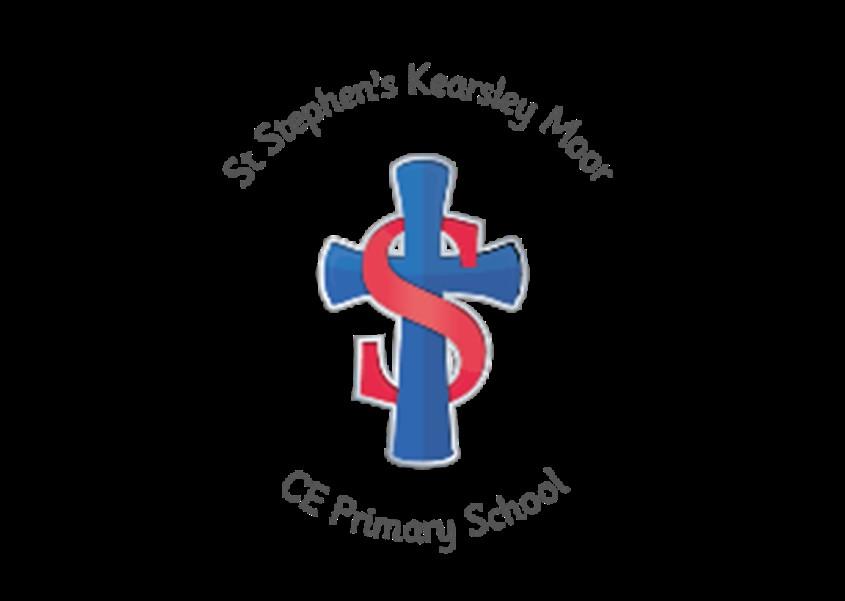


We are glad you have chosen our school and hope your child is happy here and makes good progress to become a trusted, valued member of our family. We hope that you, as parents, enjoy the time you are connected with school. During the first few years of your child’s life, you have been the teacher. You have taught him/her to walk and talk – two of the most vital areas of our development. So with your help we hope to continue that good work and build upon the strong foundations you have laid down.
Starting school should be an exciting adventure for both children and parents. If you have a positive approach and make sure your children are able to help themselves as much as possible, then starting school should be a pleasurable experience for us all.
Children can worry about seemingly small things and if we can sort that worry out between us, they will be much more relaxed and receptive to the new ideas of school. There are many ways that you, as parents, can help to make starting school easier for your children and we hope this booklet will support their transition to our school.


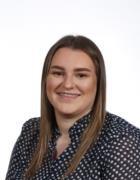

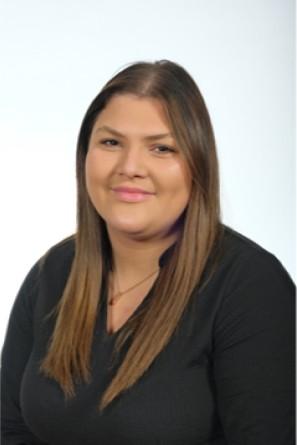


Miss Emma Wild
Reception Class Teacher

Miss Abby Smith
Teaching Assistant

Mrs Lyndsey Faulkner
Key Stage 1 Lead and SENCO
At St Stephen’s we believe no job is more important than working with children in the Early Years.
We use Development Matters to help design an effective Early Years curriculum which enables us to build on the strengths and meet the needs of all the children we work with.
Our Curriculum consists of everything we want the children to experience, learn and be able to do. It also meets the requirements of the statutory framework for the Early Years Foundation Stage (EYFS).
There are four guiding principles which shape our Early Years, these are:
Every child is a unique child, who is constantly learning and can be resilient, capable, confident and self-assured.
Children learn to be strong and independent through positive relationships.
Children learn and develop well in enabling environments with teaching and support from adults, who respond to their individual interests and needs and help them to build their learning over time. Children benefit from a strong partnership between parents and/or carers.
Importance of learning and development. Children develop and learn at different rates.
In the EYFS we reflect on the different rates at which children are developing. The statutory framework details the characteristics of effective learning from birth to five:
Playing and exploring – children investigate and experience things and ‘have a go’.
Active learning – children concentrate and keep on trying if they encounter difficulties, and enjoy achievements.
Creating and thinking critically – Children have and develop
their own ideas, make link between ideas and develop strategies for doing things.
The EYFS framework outlines the learning and development requirements which structure our Early Years and enables our children to build good stable foundations, ensuring they are ready for Year 1.
There are seven areas of learning and development, all of which are important Prime Areas: and inter-connected:
These are important for building children’s curiosity, enthusiasm for learning, forming relationships and thriving.
1.Communication and Language
2.Physical Development
3. Personal, Social and Emotional Development
Specific Areas:
These are important for children’s life-long love of reading, developing a deep understanding of maths, making sense of the world around them and developing an artistic and cultural awareness.
1.Literacy
2.Mathematics
3.Understanding the World
For each of these areas there is an Early Learning Goal (ELG’s).
This is the level of development which children are expected to achieve by the end of their year with us in Reception at the end of the EYFS. These goals set by the EYFS statutory framework support us in making a holistic judgement in our children’s development and readiness for Year 1 (see the goals on the next page in more detail).
All parents will receive information on a regular basis about your child’s development. This may be through a Parents’ Evening or discussed at the end of the school day. In July, parents will be informed if your child has achieved the Early Learning Goal.

In EYFS we often refer to children’s progress at the end of Reception as Good Level of Development (GLD).
This means at the end of Reception your child has achieved the Early Learning Goal’s (ELG’s) in the prime areas stated previously, including Literacy and Mathematics.
Throughout your child’s time here at St Stephen’s, staff will assess your child’s development against observational checkpoints guided by Development Matters. This enables us to guage the specific needs of your child, how they learn best and what they need to continue to making good developmental steps.
When discussing each child’s development, we will use the terms “ON TRACK” and “NOT ON TRACK”.
ON TRACK – Your child has achieved the Early Learning Goals. They are ready for their next journey in Year 1 and will access the National Curriculum for KS1.
NOT ON TRACK – Your child is still working towards the Early Learning Goals. They will continue on their journey in Year 1 and will access specific parts of the Early Years Framework. They may have a particular identified need or may be close to reaching the expected level.
If your child is NOT ON TRACK, staff will have communicated this with yourself prior to any meetings e.g., Parents’ Evenings.
We will work closely together to ensure we can provide what your child needs to be able to achieve the best outcomes for them.
Here are the statutory Early Learning Goals for each area of development which your child will be assessed on and should be expected to achieve at the end of their journey with us in Reception.
Listening, Attention and Understanding:
Listen attentively and respond to what they hear with relevant questions, comments and actions when being read to and during whole class discussions and small group interactions
Make comments about what they have heard and ask questions to clarify their understanding
Hold conversation when engaged in back-and forth exchanges with their teacher and peers
Speaking:
Participate in small group, class and one-to-one discussions, offering their own ideas, using recently introduced vocabulary
Offer explanations for why things might happen, making use of recently introduced vocabulary from stories, nonfiction, rhymes and poems when appropriate
Express their ideas and feelings about their experiences using full sentences, including use of past, present and future tenses and making use of conjunctions, with modelling and support from their teacher
Self-Regulation:
Show an understanding of their own feelings and those of others, and begin to regulate their behaviour accordingly
Set and work towards simple goals, being able to wait for what they want and control their immediate impulses when appropriate
Give focused attention to what the teacher says, responding appropriately even when engaged in activity, and show an ability to follow instructions involving several ideas or actions
Be confident to try new activities and show independence, resilience and perseverance in the face of challenge
Explain the reasons for rules, know right from wrong and try to behave accordingly
Manage their own basic hygiene and personal needs, including dressing, going to the toilet and understanding the importance of healthy food choices
Building Relationships:
Work and play cooperatively and take turns with others
Form positive attachments to adults and friendships with peers
Show sensitivity to their own and to others’ needs
Gross Motor Skills:
Negotiate space and obstacles safely, with consideration for themselves and others
Demonstrate strength, balance and coordination when playing
Move energetically, such as running, jumping, dancing, hopping, skipping and climbing
Fine Motor Skills:
Hold a pencil effectively in preparation for fluent writingusing the tripod grip in almost all cases
Use a range of small tools, including scissors, paint brushes and cutlery
Begin to show accuracy and care when drawing
Comprehension:
Demonstrate understanding of what has been read to them by retelling stories and narratives using their own words and recently introduced vocabulary
Anticipate – where appropriate – key events in stories
Use and understand recently introduced vocabulary during discussions about stories, non-fiction, rhymes and poems and during role-play
Word Reading:
Say a sound for each letter in the alphabet and at least 10 digraphs
Read words consistent with their phonic knowledge by sound-blending
Read aloud simple sentences and books which are consistent with their phonic knowledge, including some common exception words
Writing:
Write recognisable letters, most of which are correctly formed
Spell words by identifying sounds in them and representing the sounds with a letter or letters
Write simple phrases and sentences which can be read by others
Number:
Have a deep understanding of number to 10, including the composition of each number
Subitise (recognise quantities without counting) up to 5
Automatically recall (without reference to rhymes, counting or other aids) number bonds up to 5 (including subtraction facts) and some number bonds to 10, including double facts
Numerical Patterns:
Verbally count beyond 20, recognising the pattern of the counting system
Compare quantities up to 10 in different contexts, recognising when one quantity is greater than, less than or the same as the other quantity
Explore and represent patterns within numbers up to 10, including evens and odds, double facts and how quantities can be distributed equally

Throughout the EYFS we understand children do not all take the same path in their learning; each child learns at a different rate and in a way which is unique to them.
In the first term, assessments will be carried out. This will indicate where your child is in their development and allows us to be sensitive towards individual needs. These assessments are carried out regularly throughout the year.
We truly pride ourselves on our working partnership with parents/carers. We realise children spend a greater amount of time at home than they will spend in school with us. Together, we are accountable for your child’s development and with this in mind we have enclosed an initial assessment for your child’s social and emotional development (ASQ – Ages and Stages Questionnaire). Please carry this out at home in a relaxed environment and respond with complete honesty to the scenarios given.


This will need to be returned to the school office along with all other completed forms by Wednesday 3rd July.
At St Stephen’s we enjoy sharing each child’s progress with parents/carers. At several points throughout the year there will be opportunities for staff and parents to come together and talk about your child’s development and learning.
This may include, Parents’ Evening, Stay and Play sessions and updates via our school Dojo App.
On some occasions it may be an informal chit-chat at a transition time such as dropping off in the morning or picking up at home time, where general conversations may lead to staff sharing a special moment or a moment of pride about your child from that day.

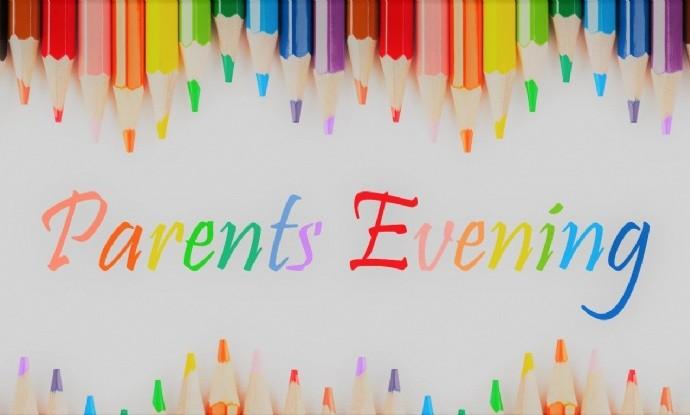


Dojo is our whole school online learning portal where we will share precious moments with family members.
Dojo allows you to upload pictures and videos onto your child’s individual learning profile. You will also be able to view and comment on any “WOW” moments we upload onto your child’s profile.
We will update you regularly on the class story with kind reminders, upcoming events and share our achievements and celebrations.
Dojo also has a messaging facility which enables you to contact us via a message on a daily basis.
When we have uploaded onto Dojo, you will receive a notification to view this post and share with other members of your family.
Other family members can have access to your child’s online portfolio too. Please ask a member of the Reception Team if you wish to add additional adults, such as, grandparents.
Please note, however, for safeguarding purposes, we kindly ask you DO NOT take screen shots of any photographs on Dojo and post them on Social Media.

In order to track your child’s progress & development throughout the areas, we provide the children with an individual Learning Journey. It is made up of photographs, anecdotes and evidence of independent and adult led activities including any “WOW” moments and achievements. These will be shared with you via your child’s Dojo profile, which can be accessed via a tablet, phone or computer.
In addition, you may access the School Website: www.ststephenskearsley.co.uk
where you will find out lots of information both about the school and about Reception Class. We also upload our memorable moments onto the website under ‘Year So Far’, accessible from our Reception class page on the website.
Learning through our natural environment is a key part in the curriculum we offer at St Stephen’s. We believe children reach their maximum potential through firsthand experiences and real-life learning.
Forest School is our outdoor classroom. We intertwine Forest School with our learning, to provide enhanced experiences for children to develop through the real world.
All children access Forest School on a weekly basis where we learn to look after nature, learn vital outdoor skills, develop our confidence and self-esteem in a woodland environment.


Forest School provides our children with the freedom to use rope swings, climb trees, scale balancing beams through trees, seesaws, building fires and dens and to ignite their natural curiosity and imagination.
All children will be required to bring a pair of wellies into school on the first week, with their name clearly labelled inside. These will then stay in school throughout the year

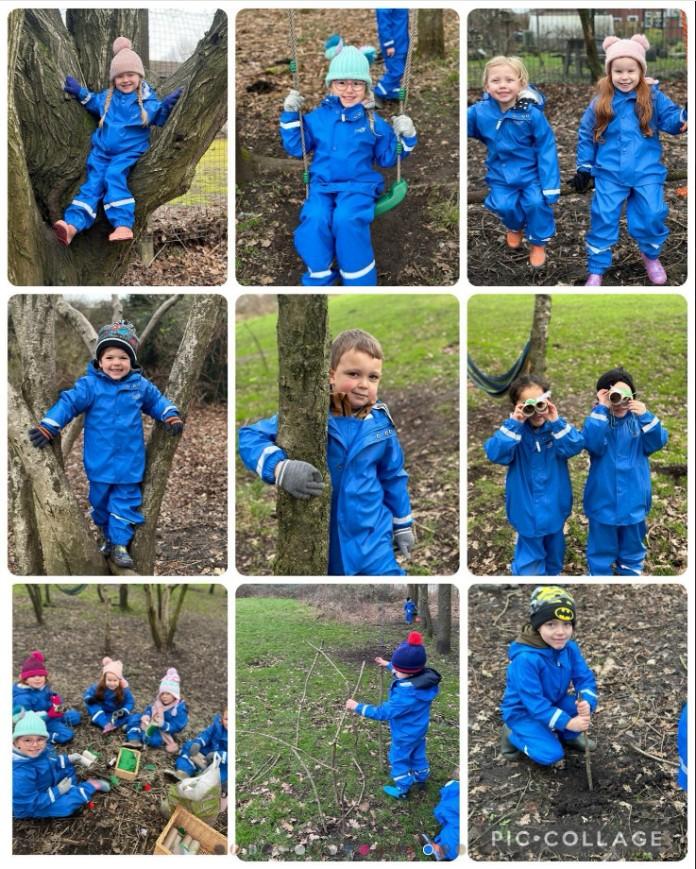
In Reception Class the children have access to snack. The snack is created and sometimes prepared with the children. Snack time plays an important role in many aspects of our personal and social learning. For this
reason we expect all children to participate. The cost of this is £10.00 payable half termly. Please send payment into school with your child in a named envelope in their Book Bag. You will be notified each half term when payment is due.


We will ensure children with any dietary requirements are also included.
Lunch times in a bigger environment can cause anxieties for some children. For this reason we will be using part of our transition induction programme to introduce your child to the School Hall. This will be done in groups so the Foundation Team and dinner staff will have time to alleviate any worries with your child.
In the past we have found when children eat together they are better at trying unfamiliar food. Please can you advise if your child has any food allergies or food aversions.
At St Stephen’s we are flexible in our approach to dinners and we do not expect your child to stay on dinners if they would prefer to change to packed lunches however we do require two weeks notice.




Every week a ‘Star of the Week’ is chosen for a variety of reasons. Their names are announced during our Celebration Assembly which takes place on Fridays. We also celebrate any wonderful pieces of work created throughout the week on our WOW Table.


We introduced our Mountaineers Club during the academic year 2022/2023. This club recognises those children who have tried their best all week, been a good friend and persevered in their work.
All children who are eligible for Mountaineers Club have their names put into a hat and the child who has their name drawn out has the opportunity to have a drink and a biscuit with Mr Puckey on Friday afternoon. They are joined by a Mountaineer from each class and these children are able to spend some time sharing their week with each other.
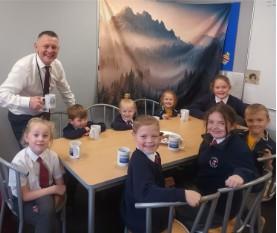

If your child has a medical condition, please make sure we are fully aware of its implications.
If your child suffers from asthma, please provide us with a prescribed inhaler and large spacer. A parent or carer will need to sign a permission letter at the School Office authorising staff to administer the medication when required.
If for any reason your child has to take medication during school hours, please note we are only able to administer prescribed medicine with a dosage of four times a day at lunch time. Permission to administer the medicine must be signed at the School Office.

Our First Week at School
In order to welcome both children and parents into the St Stephen’s family, we feel it is beneficial for the children to start in their Key Worker groups.
Green Group Yellow Group
Freddie Donohue
Percy Dyson
Una Johnson
Evelyn Swithenby Haigh
Jessie Tran
David Uwagbor
Red Group
Dexter Barker
Sila Demir
Charlie Dewsnip
Felix Heathcote
Lillie Lowe
Max Scoble
Heavenly Sentamu
Elsie Bailey
Isaiah Chipinda
Sonny Coffey
Corah Cropper
Poppy Smith
Leroy Warburton Thompson
Blue Group
Mitchell Barrick
Elsie May
Theo Morris
Polly Sleaford
Thea Swithenby Haigh
Robson Tate
Leo Windsor DAY AND DATE
Tuesday 3rd September
Wednesday 4th September
Thursday 5th September & Friday 6th September
9.30 am – 1.15 pm
Blue Group and Green Group Children will stay for lunch
Yellow Group and Red Group Children will stay for lunch
ALL children will attend full time 8.40 am – 3.10 pm
From Monday 9th September your child will attend school full time. You may drop your child at school between 8.40 am and 8.55 am and collect them from the Foundation Stage gate at 3.10 pm
We look forward to welcoming you. If you have any queries please do not hesitate to contact us either by phone or Class Dojo.
08.40 am Gates are opened and children are welcomed into class
09.00 am Phonics Session
09.30 am Children choose an area of provision to learn in (Outside and Inside)
11.00 am Topic Session
11.40 am Dinner
Children play in a sectioned off area of the playground for the first term before integrating with the rest of school
1.00 pm Relaxing, Registration and Toothbrushing
1.10 pm Maths Session
1.30 pm Children choose an area of provision to learn in (Outside and Inside)
2.40 pm PSHE/R.E/Music Session
2.50 pm Storytime/Rhymes
3.10 pm Home Time
Children are collected from the same gate they are dropped off at
Alongside Dojo, we also use our Notice Board to keep you up to date. You will find this at the Reception Gate Entrance.


To help your child settle into school we encourage the children to have a ‘buddy’ from Year 6.
Please read the special letter enclosed to familiarise your child with their buddy.
At St Stephen’s we are very proud of how smart we look. Our uniform consists of the following items, all of which are available from Ziggy’s Schoolwear, 6 Brackley Street, Farnworth (01204 577211)
Navy "V" neck sweatshirt with school logo
Navy "V" neck sweatshirt or cardigan with school logo
Tailored grey school trousers / shorts Grey pinafore dress/skirt/trousers/sky blue checked dresses in summer
White shirt (preferably short sleeve)
School tie (available from school)
Black shoes
School Book Bag (Velcro fastening only) No rucksacks
White blouse
School tie (available from school)
Tights, when worn, should be plain navy, grey or black
Black shoes
School Book Bag (Velcro fastening only)
No rucksacks
PE Kit PE Kit
Navy shorts
House coloured t-shirt
Velcro trainers
Navy tracksuit with school logo
Navy shorts
House coloured t-shirt
Velcro trainers
Navy tracksuit with school logo
Forest School Forest School
Named wellies and welly socks
Jogging bottoms
Named wellies and welly socks
Jogging bottoms/leggings
Please can your child come to school dressed in their PE kit on their PE days. This saves time getting changed and missing lesson time. Please label all uniform with your child’s name as we cannot be responsible for locating clothing which is un-named.
To extend the children’s learning, we like to take the children on a variety of experiences beyond the classroom.
You will be informed of any forthcoming events and asked to sign a permission slip and return to school along with payment. Alternatively, you may pay and give consent online using our online payment system SchoolMoney. You will receive an invitation code via email to register an account.
Please note that without your consent, we are unable to take your child out of school.
Payment and permission slips should be handed to a member of staff in a named envelope, not put in book bags.


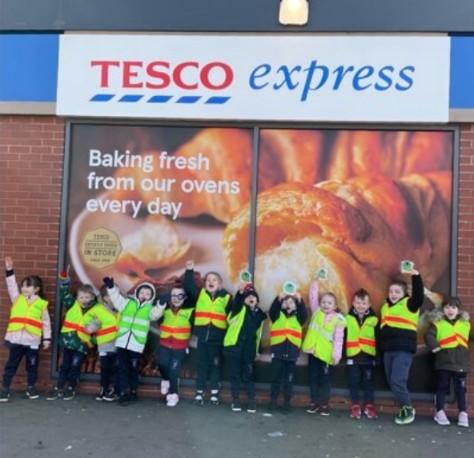




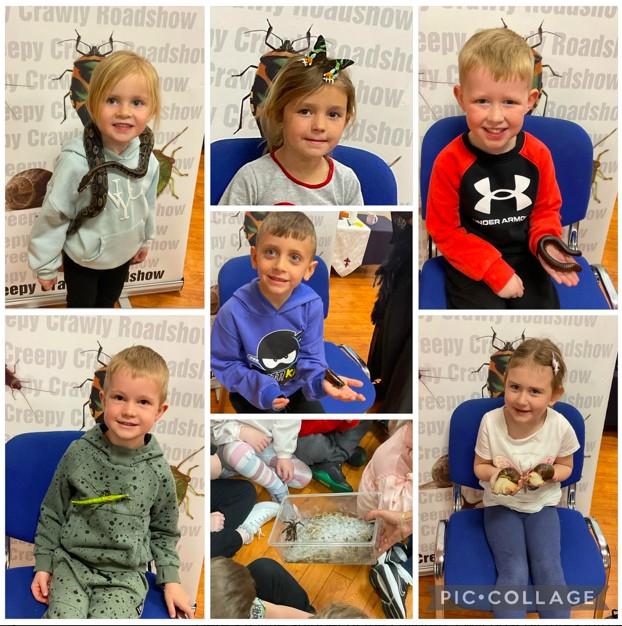


Uniform – all pieces labelled please
Coat – with a loop for hanging and identifiable tag on the zip. Always send a coat into school, even when the weather is warm as the Reception outdoor area is in the shade
Book Bag (Velcro fastening) – just for reading book, blue book and home link activities – no water bottles to be put inside bags
Identifiable tag/key ring of your choice for your child’s book bag
PE kit, including tracksuit. Your child will come to school dressed in their PE kit on PE days
Named Lunch Boxes – cubes or cuboids shapes are best if possible
Named wellies – to be kept on our welly rack for outdoor play
Spare underwear – to be kept in Book Bags for the first few weeks in case of accidents
Helpful things to practise...
Getting dressed/undressed
Zips and buttons on coats – we always go outside even in wet weather so please send a coat everyday
Shoes – Velcro is easier than laces at this stage
Using a knife and fork
Going to the toilet
Encourage your children and show them how to do things, rather than doing things for them. It is important that your child brings their book bag to school every day and equally as important that you check your child’s book bag every evening, as this is the place you will find important letters and other information
We expect our children to read regularly at home and for them to complete their ‘Busy Book’ tasks.
These weekly activities generally coincide with our topic learning. Therefore, it is important the activities are completed and returned to school on time.
The Busy Book is sent home on Friday and needs to be returned on the following Wednesday and placed in the box provided outside the Reception gate.



As part of our Library Lending service children will be able to borrow a book. This is usually done during time spent with their Buddy.
Please note, if you do not return your book on the specified day, your child may have to wait until the next week to change their book

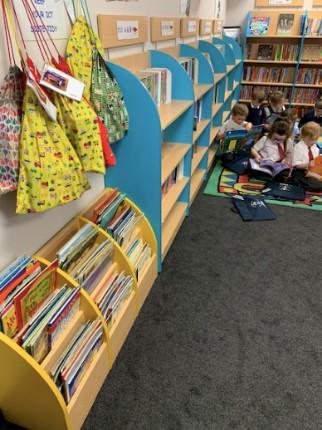
Wellcomm is a toolkit designed to help early years settings identify children from six months to six years old who may be experiencing delays with speech and language. It can then be used to put immediate interventions into place while waiting for a more formal assessment.
During the first four weeks we will assess your child using the Wellcomm tool kit.
This gives us a good understanding of your child’s communication and language skills. It will allow us to tailor activities to your child’s individual needs if required.


This book is an important record of your child’s progress at home and school. It must be signed and dated whenever your child has attempted to read.
We will check and change books at least once a week. If you have any queries, please do not hesitate to write in the Reading Record Book or come into class.
We take part in a whole school ‘Love of Reading’ scheme, whereby children earn a raffle ticket for reading three or more times each week. This is entered into our termly competition where the chosen ticket winners receive a cash prize to spend on quality language rich books.
There is no set time or place
It is important this is a quiet time for you to share with your child
Choose a time when there aren’t other things your child wants to do
Give lots of praise, don’t nag or the experience will not be enjoyable
Encourage other adults to read with your child, or even older siblings who have enough phonic knowledge to help
Don’t expect your child to read the full book – a few pages at a time is the best way to learn
At St Stephen’s we currently use a print style, an example of which you can find in your pack. Please try and practise with your child.
We will be doing lots of physical activities to help develop your child’s pencil control. In school, we will be demonstrating how each letter is formed once the letter sound has been introduced. The formation and rhymes are available in a home resource pack which will be sent home in September.
Say how messy it is
Point out spelling mistakes
Put it in the bin………..in front of them
Talk about what the writing says

Ask your child where they got the idea for the writing from
Ask what they think about the writing. Do they want to show anyone else? Put it on the wall?
Wait for your child to ask for help. Then maybe help with the letter shape, full stops or spelling
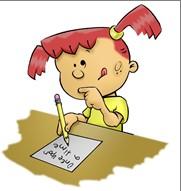

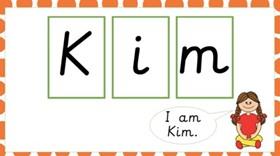







Read individual letters by saying the sounds for each of them
Blend sounds into words
Read some letter groups that each represent one sound
Read some high frequency tricky words
Read simple phrases and sentences
Write lower-case and capital letters correctly
Read and re-read books to build up their confidence in word reading, fluency, understanding and enjoyment
Spell words by identifying the sounds and then writing the sound with the letter/s
Write short sentences using a capital letter and a full stop

Re-read what they have written to check that it makes sense

During the early years, children develop firm foundations in early mathematical skills, knowledge, understanding and an appreciation for maths. The first few years of a child’s life is a prime time to nurture a child’s natural instincts to use and apply mathematical thinking which is why we provide quality, rich mathematical experiences to support children to develop number awareness and key number concepts.

In order to help your child and to introduce you to new terminology and techniques we use in school, we will host ‘Workshops’ to outline the different Programmes we use and the role you play in it. It is important you attend so we can give you up-to-date information.
These workshops will be held throughout the year. We will inform you of the date nearer the time. There may be a mixture of in person and virtual workshops. As mentioned, it is important you attend to aid and support your child – even if you have another child in school. We are sure you will appreciate things change.
Once the children are settled, we open our library to parents/carers to come, stay and read with their child once a week from 2.45 pm to 3.10 pm. This is a wonderful opportunity to develop the love of reading with your child and promote their early reading skills. These sessions will take place every fortnight.

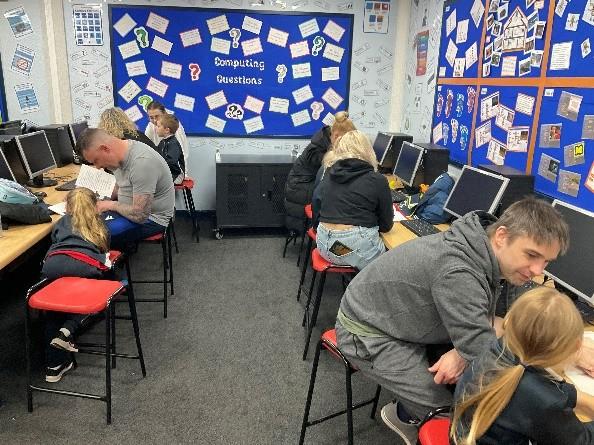


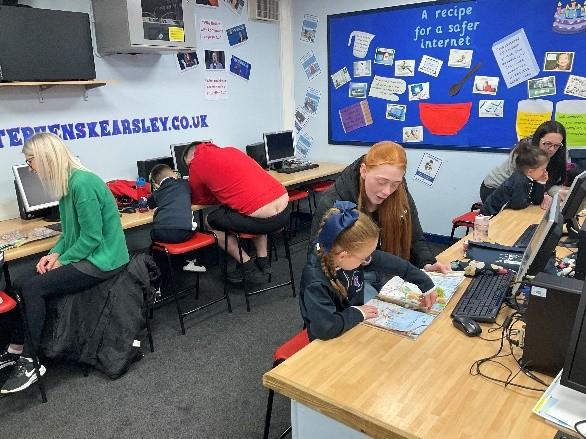

According to a new study, children of all ages fall asleep faster if they have not been staring at a screen in the two hours prior to bedtime – and this adds up to an extra hour of sleep during a school week.

Children need significantly more sleep than adults to support their rapid mental and physical development.
“Sleep is so important in order to ensure that children can meet their full potential in every aspect of their lives”
Vicky Dawson – Children’s Sleep Charity.




The Foundation Stage Team looks forward to welcoming you and your child into our setting in September. We hope this booklet provides you with all the necessary information you require and our pictoral guide gives you and your child a glimpse of our setting in preparation for a smooth transition.
In the meantime, if you have any queries, please feel free to contact us via the School Office and we will endeavour to help you.






AUTUMN TERM *INSET Day Monday 2nd September 2024
Term Begins Tuesday 3rd September 2024
Half Term Monday 28th October 2024Friday 1st November 2024
Term Ends Friday 20th December 2024
SPRING TERM *INSET Day Monday 6th January 2025
Term Begins Tuesday 7th January 2025
Half Term Monday 17th February 2025Friday 21st February 2025
Term Ends Thursday 10th April 2025
*INSET Day Friday 11th April 2025
SUMMER TERM
Term Begins Tuesday 22nd April 2025
Bank Holiday Monday 5th May 2025
Half Term Monday 26th May 2025(includes Thursday 5th June 2025
Bank Holiday)
*INSET Day Friday 6th June 2025
Term Ends Friday 18th July 2025
THE SCHOOL YEAR 2025/2026 TERM START DATE –Monday 1st September 2025